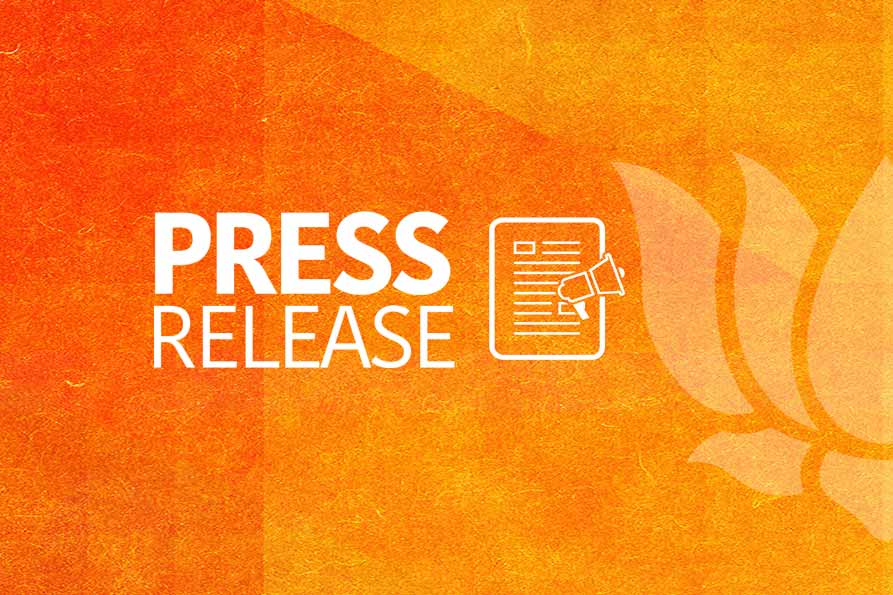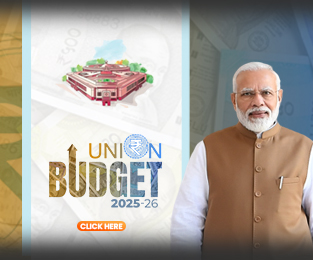
Let's Strengthen Democracy
The main theme of this Conclave is “Building a Better Future”.
India today commands respect in the world not only because it is perceived as a country with immense economic potential, but also because it is a vibrant, vigorous democracy.
I hold that for a better future Indian democracy needs to be strengthened and made cleaner.
The on-going interaction between India and Pakistan has these days produced a series of books under the umbrella caption “Cross Border Talks”. The first volume in this series was produced last year under the title “Diplomatic Divide”. It was jointly authored by Dr. Humayun Khan and Shri G. Parthasarthy.
The second volume in this series has just been produced and has been authored by Meghnad Desai, Economist, who is an active member of the British Labour Party and is also presently a member of the House of Lords. The co-author of this book is Aitzaz Ahsan. Ahsan is now a leading member of the Pakistan Peoples Party and a senior Advocate in the Supreme Court of Pakistan. He was Home Minister in Benazir Bhutto’s first cabinet. The title of this second book is “Divided by Democracy”.
In this book Desai analyses why India is a democracy, whereas Ahsan seeks to explain why Pakistan is not a democracy.
Meghnad Desai identifies the revolutionary decision of the Constituent Assembly to adopt universal adult franchise as the key to the survival of democracy in India. The overwhelming desire of the leaders of the independence movement, many of whom were educated in England, was for a Westminster-style democracy.
Aitzaz Ahsan argues that at Partition, while India had a strong middle class and political structure and a subordinated civil and military bureaucracy, in Pakistan it was the opposite. It inherited a strong feudal class, an insignificant bourgeoisie and an entrenched civil and military bureaucracy. These vested interests have never relinquished their control over the country, and have in the process choked the spirit of democracy there.
Thus, both Meghnad Desai as well as Aitzaz Ahsan, in their presentation, dealt mainly with contemporary factors which have contributed towards making India a democracy or have denied Pakistan a democratic character.
In the late 80s a Canadian Television team produced a series titled “The rise and fall of democracies around the globe”. The team interviewed me as BJP President and expressed surprise as to how India, despite the fact that it was multi-lingual, multi-religious, multi-ethnic, and with such a large population which was illiterate had nevertheless established itself as a successful democracy over the decades.
I told the TV team: My analysis is that intolerance towards a different point of view is the biggest enemy of democracy. The world over such intolerance has been most manifest in the field of religion. In India, the fundamental belief that all roads lead to God and so all religions ought to be respected, has ensured not only a measure of tolerance towards different points of view but even respect for dissenting opinions. It is this innate attitude which has contributed to the success of democracy in India.
During the last three decades, Jammu and Kashmir has been victim of grave terrorist violence. The participants in this activity have been mainly from Pakistan, Afghanistan and sometimes even from some distant Islamic countries. In my U.S. visit two years back I often used to say that if Indian Muslims have kept away from this, it is because of democracy.
These days I read an interesting book by well known journalist Thomas Friedman titled “The World is Flat”, which highlights this point very sharply. Al Qaeda has attracted Muslims from all Islamic countries but its influence in the second largest Muslim country of the world, namely India, has been very little, Friedman points out.
To strengthen democracy electoral reform has to be a continuing process. Our country has undertaken many reforms but a lot still needs to be done, more particularly with regard to curbing the influence of money power. I feel a consensus must be hammered out on the issue of public funding of elections.
The prevailing cynicism that nothing can be done with regard to money power must be shed. What U.K. has achieved in this context has a lesson for us. As a student of poll reforms in U.K. I can affirm that elections in Britain in the 18th and 19th century were shockingly corrupt. A Hansard publication Our Parliament by Strathern Gordon notes :
“Between 1812 and 1832, £ 5,000 to £ 6000 was the ordinary price of a seat purchased for Parliament, or £ 1800 if rented for a year.”
Some years back B.B.C. broadcast a series of features on the working of the British Parliament. One of these features recounted an interesting incident of the 18th Century House of Commons thus:
In the early eighteenth century, a particularly obstreperous Member of Parliament replied in these terms to his constituents who had written to him asking him to vote against the Budget:
“Gentlemen, I have received your letter about the excise, and I am surprised at your insolence in writing to me at all
“You know, and I know, that I bought this constituency.
“You know, and I know, that I am now determined to sell it.
“And you know what you think I don’t know, that you are now looking for another buyer;
“And I know what you certainly don’t know, that I have found another constituency to buy !”
As I said at the outset, democracy in India is stable, but it needs to be strengthened and made cleaner. Corruption in high places must be dealt with firmly.
Two reports published recently – first, the Mitrochin Archives, and lately, the Volcker Report – highlight how vulnerable our political leadership is to the lure of big money. And where these monies come from foreign agencies the case becomes far worse than ordinary corruption. I am happy to learn that earlier in the day assurances have been given by those who matter that these exposures will be thoroughly probed, and the guilty will not be spared.
A serious problem related not only to the question of democracy but even to the question of economy and security is the alarming population growth our country is witnessing. Radical steps are really needed to contain this population growth. The excesses that took place during the Emergency period should not deter the country from considering legislative measures to ensure a two-child norm.
The massive illegal immigration from our neighbouring country, Bangladesh, is another factor that weakens democracy and creates problems for our economy and security. There is a broad consensus that the identity cards scheme for all Indian citizens already initiated needs to be urgently implemented. Besides this, there has to be a national will to deal sternly with illegal immigration and not let vote-bank politics make political parties blind to this menace.
Most of the tasks referred to above can be implemented only if there is a broad national consensus among political parties.
Today India is not a two-party system. However, in the past few decades India has become a bipolar polity in which the Congress and the BJP are the two principal poles of national politics. So even if a total national consensus is not possible on these crucial matters, the minimum required is an agreement between the two principal parties.
Excerpts from some books quoted in the course of the speech
I just wanted to understand why the Indians I met were taking our work, why they had become such an important pool for the outsourcing of service and information technology work from America and other industrialized countries. Columbus had more than one hundred men on his three ships; I had a small crew from the Discovery Times channel that fit comfortably into two banged-up vans, with Indian drivers who drove barefoot. When I set sail, so to speak, I too assumed that the world was round, but what I encountered in the real India profoundly shook my faith in that notion. Columbus accidentally ran into America but thought he had discovered part of India. I actually found India and thought many of the people I met there were Americans. Some had actually taken American names, and others were doing great imitations of American accents at call centers and American business techniques at software labs.
Columbus reported to his king and queen that the world was round, and he went down in history as the man who first made this discovery. I returned home and shared my discovery only with my wife, and only in a whisper.
“Honey,” I confided, “I think the world is flat.”
*******
The largest Muslim country in the world is Indonesia and the second largest is not Saudi Arabia, Iran, Egypt, or Pakistan. It is India. With some 150 million Muslims, India has more Muslims than Pakistan. But here is an interesting statistic from 9/11: There are no Indian Muslims that we know of in Al-Qaeda and here are no Indian Muslims in America’s Guantanamo Bay post-9/11 prison camp. And no Indian Muslims have been found fighting alongside the jihadists in Iraq. Why is that ? Why do we not read about Indian Muslims, who are a minority in a vast Hindu-dominated land, blaming America for all their problems and wanting to fly airplanes Into the Taj Mahal or the British embassy? Lord knows, Indian Muslims have their grievances about access to capital and political representation. And interreligious violence has occasionally flared up in India, with disastrous consequences. I am certain that out of 150 million Muslims in India, a few will one day find their way to Al-Qaeda – if it can happen with some American Muslims, it can happen with Indian Muslims. But this is not the norm. Why?
The answer is context – and in particular the secular, free-market, democratic context of India, heavily influenced by a tradition of non-violence and Hindu tolerance.
(The World is Flat written by Thomas Friedman)
*******
To Write Comment Please लॉगिन



.gif)





